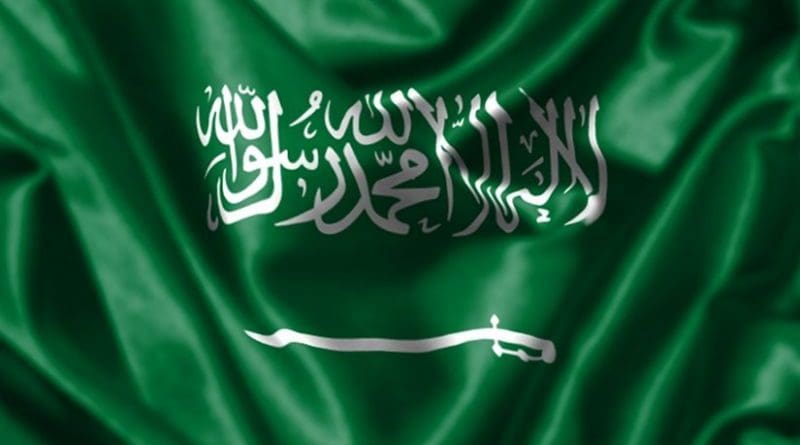Has Journalist Jamal Khashoggi Fallen Afoul Of Saudi Arabia’s Escalating Crackdown On Dissent? – OpEd
Concerns are mounting for the safety of one of Saudi Arabia’s highest-profile critics who has gone missing after a routine visit to the country’s consulate in Istanbul.
Respected journalist Jamal Khashoggi, who authors a regular column for the Washington Post, attended the consulate on 2 October to pick up divorce paperwork but has yet to re-emerge. The Saudi government claimed that Khashoggi had left the consulate before he disappeared, an assertion that failed to convince either his family or Turkey, which summoned the Saudi ambassador and insisted that Khashoggi was still inside the consulate.
Khashoggi’s family and colleagues have good reason to worry about his disappearance, given the context of Crown Prince Mohammed bin Salman’s year-long crackdown on dissenters.
Khashoggi’s outspoken opinions
Khashoggi is an influential figure in journalistic circles: a prolific political commentator, well-known for his outspoken views on Saudi affairs. He moved to the United States last year amid growing concerns for his safety, and has used his platform at the Washington Post to throw a spotlight on the darker corners of Saudi foreign and domestic policy.
De facto ruler Mohammed bin Salman – known as MBS – has proclaimed his intent to modernize Saudi Arabia through a series of ambitious reforms. Khashoggi, however, has argued that despite a handful of headline policy decisions – such as finally allowing women to drive – Saudi citizens and activists are still being routinely arrested and jailed.
In a recent interview, Khashoggi expressed his view that the kingdom could never become democratic under MBS’s rule, citing the country’s involvement in the war in Yemen, its activities in Lebanon and the Saudi-led blockade of Qatar as evidence of the Crown Prince’s determination to consolidate his power at all costs.
Intervention in Yemen damaging Saudi Arabia’s international reputation
The bloody conflict in Yemen is increasingly chipping away at Saudi Arabia’s legitimacy on the global stage. Over the last four years, more than 6,000 civilians have died and millions more are on the brink of starvation, thanks largely to the blockade imposed by Saudi and its allies that has prevented vital food and medical supplies from entering the country.
MBS’s government has claimed that the war was sparked as a result of security fears over Iranian involvement in Yemen, but critics – including Khashoggi – have emphasized that how the war began is less critical than the tactics Saudi has since employed to gain the upper hand. As the conflict drags on and more lives are lost—including 40 schoolchildren killed in August in an airstrike by the Saudi-led coalition—criticism from the international community is mounting.
The Qatar boycott has stoked regional conflict
Yemen is not the only regional dispute Saudi Arabia has become embroiled in: the ongoing Gulf crisis sprang out of a clash between some of Qatar’s foreign policy initiatives—maintaining good relations with Iran, or supporting groups such as the Muslim Brotherhood—and Saudi Arabia’s Wahhabism. The tensions had been simmering for years, but ratcheted up sharply in June 2017 when Saudi Arabia demanded that Qatar meet a list of 13 sweeping conditions—within 10 days.
When Qatar rejected the list as “unreasonable”, Saudi Arabia, the UAE, Bahrain and Egypt severed diplomatic and economic ties with the tiny emirate. More than a year in, the spat shows no signs of cooling off. Mediation efforts led by Kuwait haven’t borne fruit. If anything, the standoff has escalated, after reports emerged that the Saudi government was planning to build a canal that would effectively turn Qatar into an island, cutting off any land access.
On the sidelines of the recent UN General Assembly, Saudi foreign minister Adel Al-Jubeir confirmed that the kingdom isn’t backing down anytime soon and is ready to keep up the blockade for decades if need be. It’s this very stubbornness on Saudi authorities’ part which Khashoggi frequently criticized before his disappearance, blaming it for the protracted crisis between former Gulf allies.
Turmoil at home
It’s the Saudi government’s internal policies that have particularly provoked Khashoggi, however—the very crackdown on dissent and the free press to which he himself may now have fallen prey.
Last year, MBS embarked on a purge of businessmen, media figures and military leaders, including several members of the royal family—ostensibly as part of a campaign against corruption, but which Khashoggi deemed a naked power grab reminiscent of Vladimir Putin’s strongman style. The crown prince subsequently oversaw a crackdown on intellectuals, clerics, activists and journalists who had criticized the regime—seeking the death penalty for some.
Saudi authorities claim that the arrests netted more than $100 billion in fines; critics argue that the arrests were designed to consolidate the crown prince’s power rather than to pursue corruption. For his part, Khashoggi was outspoken about his belief that Saudi Arabia is becoming a dictatorship, with MBS ready to succeed his father as its supreme leader. As the crackdown escalated, fearing arrest— or worse—Khashoggi fled the country.
No rush to condemn Saudi Arabia
Western countries welcomed Khashoggi in exile, but are reluctant to sanction Saudi Arabia, which they view as a key commercial and political ally. Even President Trump has confined his criticism of the kingdom to economic disputes rather than human rights violations. When Canada’s foreign ministry objected to the imprisonment of civil activists earlier this year, Riyadh reacted fiercely and angrily. The silence from other western nations was deafening.
If the Saudi government really is responsible for Khashoggi’s disappearance, it suggests that not only is the Saudi regime intent on pursuing its own policies without interference but that it’s also not afraid of targeting dissidents like Khashoggi who live outside the Saudi jurisdiction and whom most would see as untouchable. And if Western nations – especially the United States – are inclined to turn a blind eye, authoritarian leaders like MBS could become further emboldened.
Meanwhile, Khashoggi’s friends and family will be hoping for a breakthrough that will result in his swift return.

